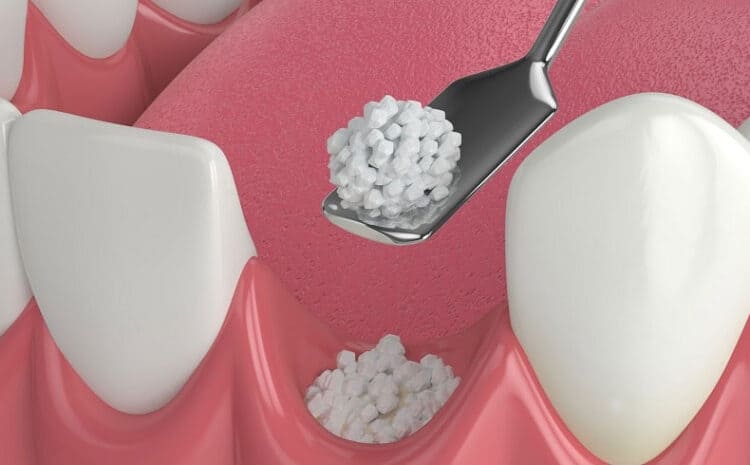
Achieve Perfect Dental Implants with Bone Graft Solutions
A dental bone graft is a procedure used to replace missing teeth. In sites of bone loss, a dental bone graft reinforces the volume and solidity of your jaw. Once a bone graft is in place, it would enable your body to rebuild. In other words, a dental bone graft serves as a scaffolding for your bone tissue to grow and rebuild and helps in jaw reinforcement.What are the different types of bone transplants?
The following are the three most prevalent types of bone grafts:
Autograft Dental Bone Grafts: It comes from a bone inside your body, such as your ribs, hips, pelvis, or wrist allograft. The graft utilized is determined by your surgeon.
Allograft Dental Bone Grafts: These are frequently employed to repair the hip, knee, or long bone. Allograft bone transplants use bone with no living cells, reducing the chance of rejection. In addition, there is no requirement to match blood types between the donor and the receiver because the transplanted bone does not have living marrow.
Alloplastic Dental Bone Grafts: Alloplastic grafts are a form of glass from hydroxyapatite (a mineral found in bone). This material is non-inflammatory and non-carcinogenic, making it safe for patients and incredibly effective for bone grafting. Although there are different grafts available, alloplastic grafts produce the best results.
If you desire to get dental implants, you will need healthy gums and enough bone to support the implant. In addition, a bone transplant may be required if your bone is too thin or soft. A bone graft is a method that aids in bone reconstruction by transplanting healthy bone tissue.
Here are six reasons to consider for bone grafting before getting dental implants.
1) Missing Tooth
Dental Bone grafting may be required if a tooth is lost due to an extraction due to an accident. If there is no tooth supporting the jawbone, it will degrade with time, making dental implants challenging to receive. Dental Bone grafting can heal and prevent jawbone loss, thereby strengthening the area where there is a missing tooth is located and providing patients with more options for tooth replacement.
2) Periodontal disease
Periodontal disease, also known as gum disease, can cause jawbone weakness and tooth loosening. Periodontal disease can be treated or reversed, and bone grafting can be used to rebuild the basis for strong teeth. When a tooth in Aurora goes loose, one of the first things a patient thinks about is a dental implant. However, if the patient has had the periodontal disease for a long time, bone grafting may be required to strengthen the bone for implants to be supported.
3) Misalignment of the Teeth
Believe it or not, misaligned teeth can cause bone loss over time. When teeth are over-erupt or are entirely out of place, bone activation might gradually decrease if the teeth are not realigned. There are numerous procedures for straightening teeth, each with its advantages. However, bone grafting may still be required to guarantee that the teeth have appropriate support after aligning again.
4) Dental implants are supported by bone
The primary reason patients require bone grafting is to give the optimum support for dental implants. All of the causes mentioned above could eventually necessitate the use of implants. However, implants may not be viable unless the supporting bone is sufficiently strong. With new technological advances, bone grafting can replace the lost bone even if it has been gone for an extended period. As a result, patients can obtain dental implants and go about their day with a healthier and better smile once the structure has been repaired.
5) Suffering from face injury or trauma
Tooth trauma, such as bruxism or teeth grinding can strain the teeth and erode the surrounding tissue that supports the tooth structure. Bone grafting may be required to reverse the consequences of bone degradation, restore function, and promote new bone formation in damaged areas.
6) For Denture Support
If you intend to obtain dentures, you will undoubtedly require a healthy jawline to retain them in place. Dentures are an excellent alternative for older people who have lost multiple teeth. If a person wants their dentures to fit correctly, they should consider having their jawbone reinforced, where bone grafting comes in. As a result, your new dentures will last longer.
Do you have any further questions about Dental Bone Grafts and dental implants?
If you have any further questions about oral health and dental implants, you can schedule a consultation with Dr. Adatrow. Dr. Adatrow has 20 years of experience in placing dental implants, with a success rate of over 97%, and can provide you with the best possible dental treatment. He is a Board-Certified Prosthodontist and Periodontist in Memphis, TN, region. Please get in touch with our office for your consultation now!About Advanced Dental Implant and TMJ Center
Advanced Dental Implant and TMJ Center provides personalized and specialized dental treatment for patients in Desoto County, MS and Memphis, TN areas. Dr. Pradeep Adatrow is Specialist in Dental Implants and Gum Diseases and provides patients with customized treatment plans to meet the oral health needs of his patients. Dr. Adatrow is the only practicing board-certified Periodontist and Prosthodontist in the South East United States. He earned his Doctor of Dental Surgery and Post Graduate Prosthodontic Training from the University of Tennessee College of Dentistry and his Post Graduate Training in Periodontics from Indiana University. Dr. Adatrow is board certified by the American Board of Periodontology and is a Fellow of the prestigious International College of Dentistry. Along with a devoted team of dental hygienists, assistants, and administrative staff, we strive for excellence in customer satisfaction. Please visit our website at www.advanceddentaltmj.com or call us at (662) 655-4868 to schedule a consultation.



